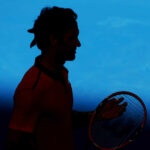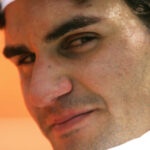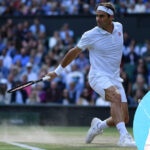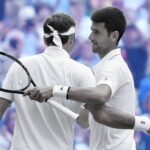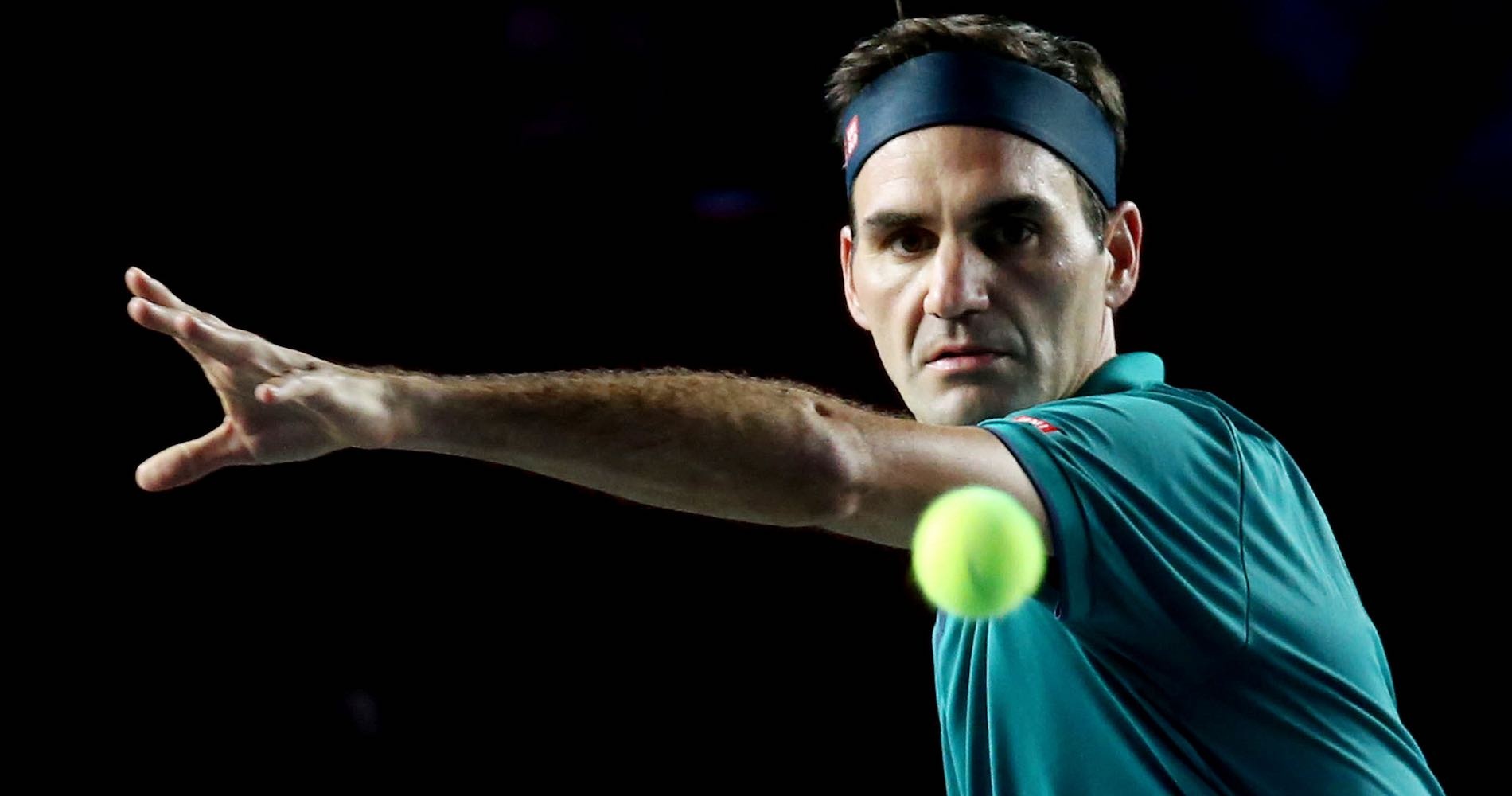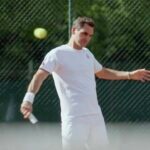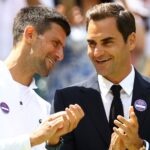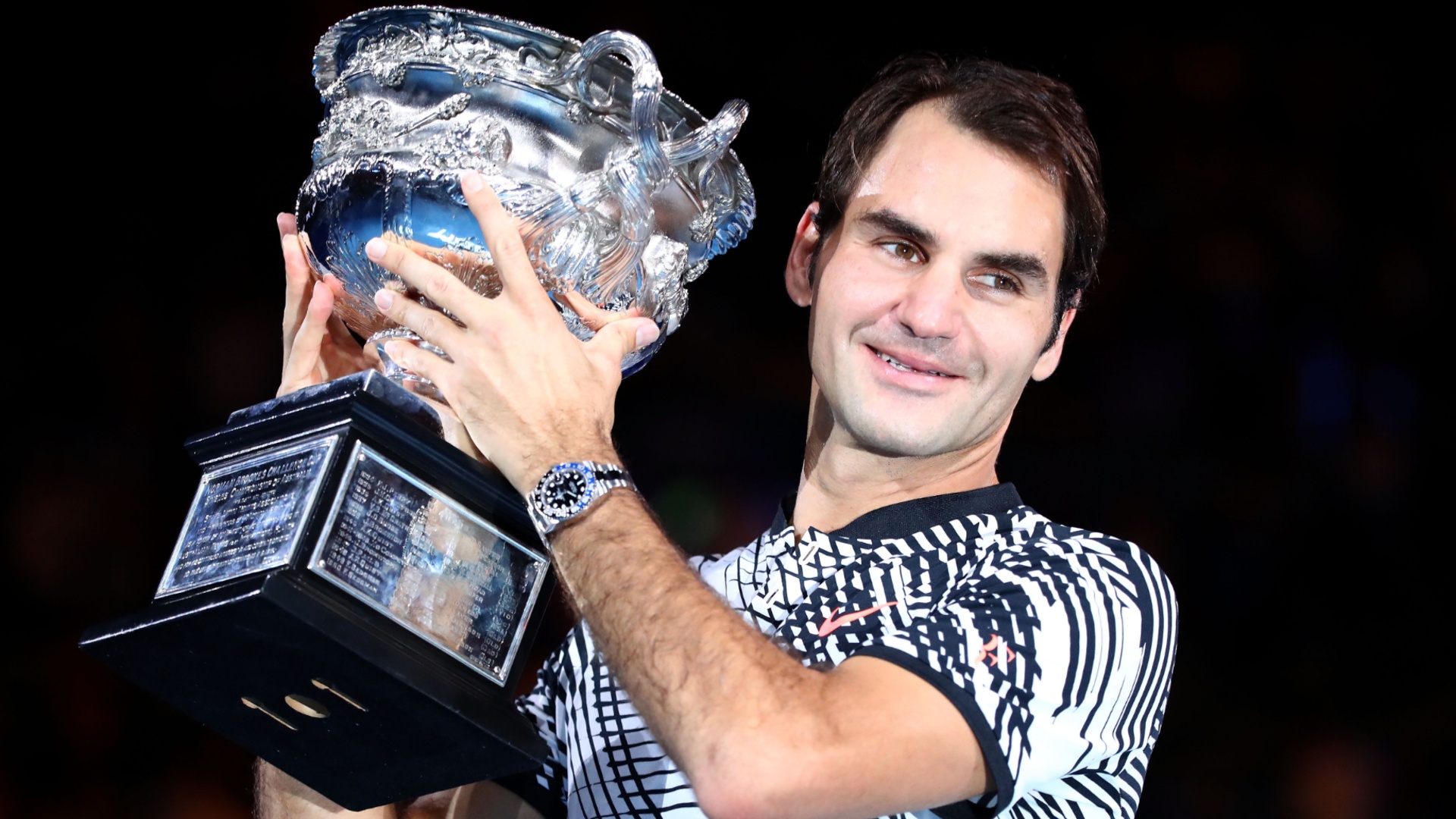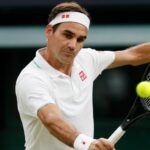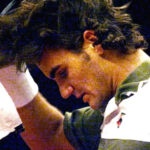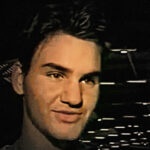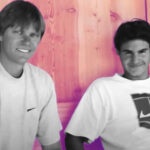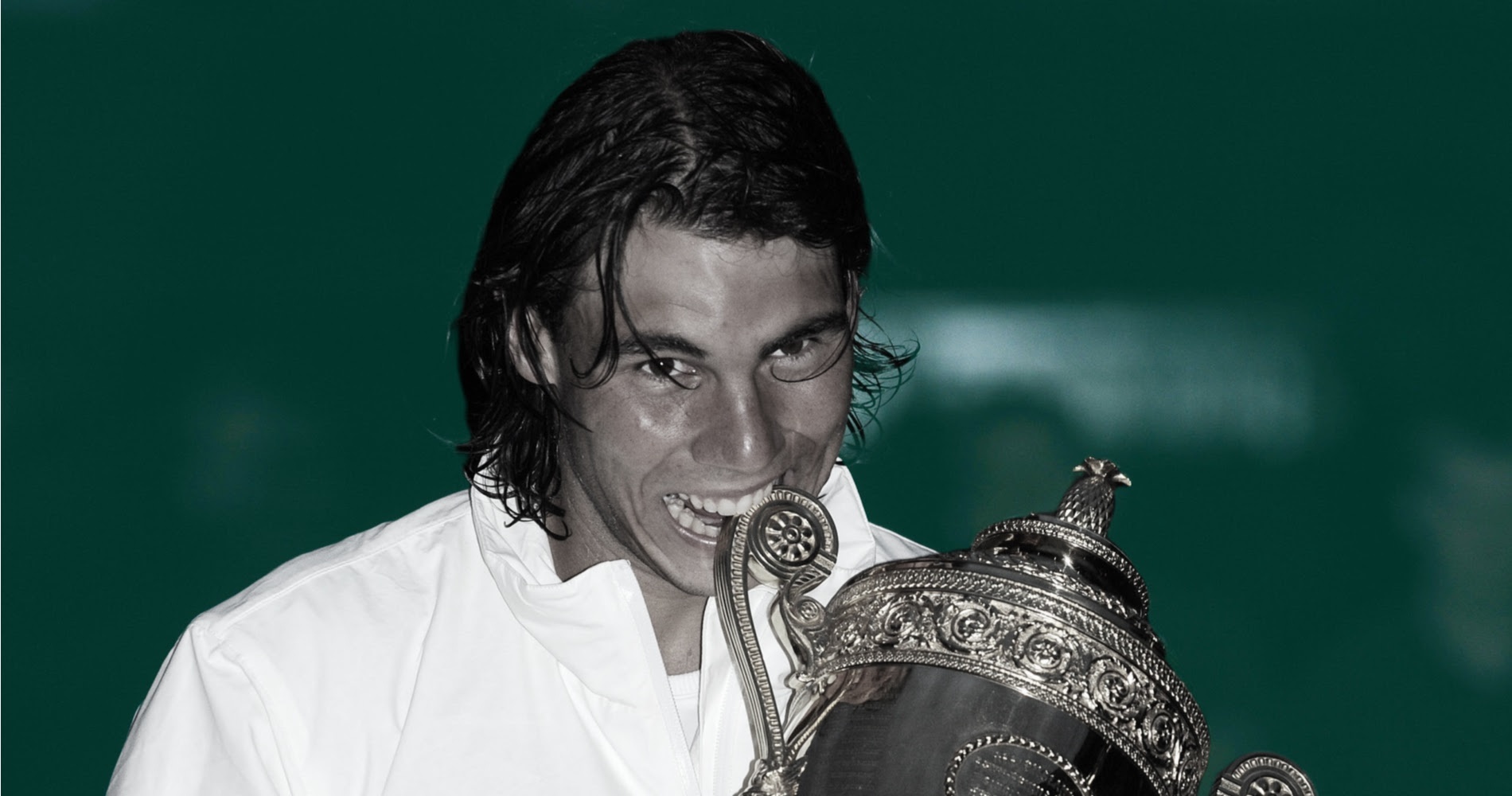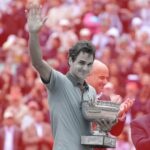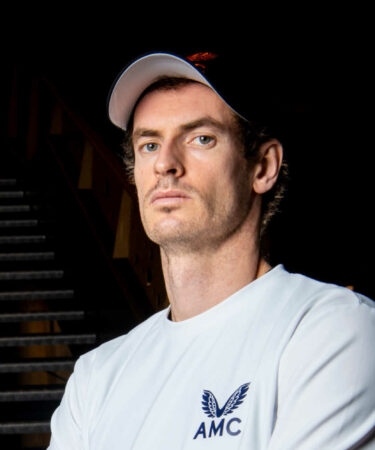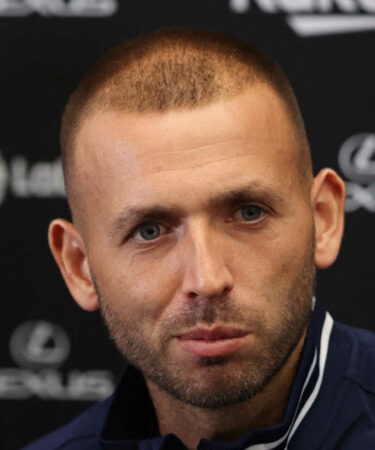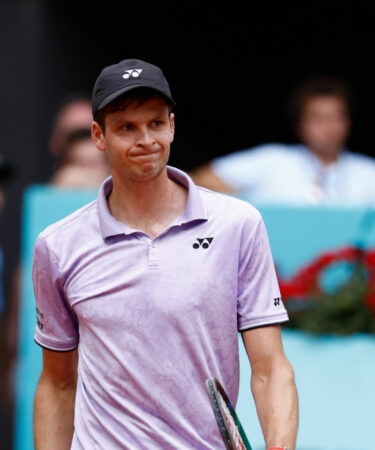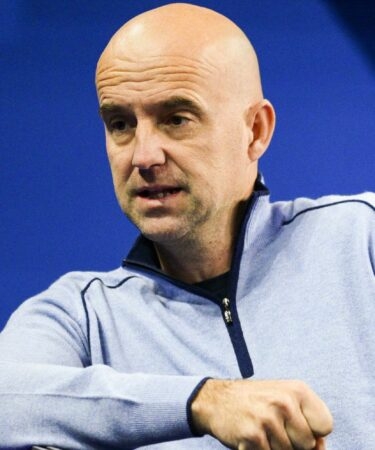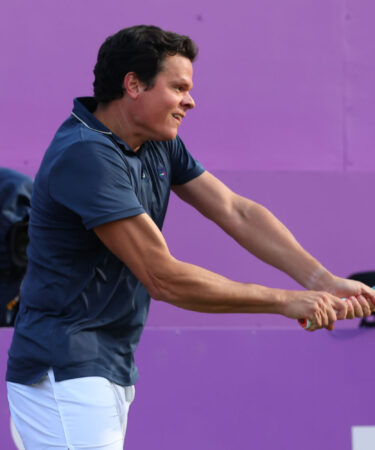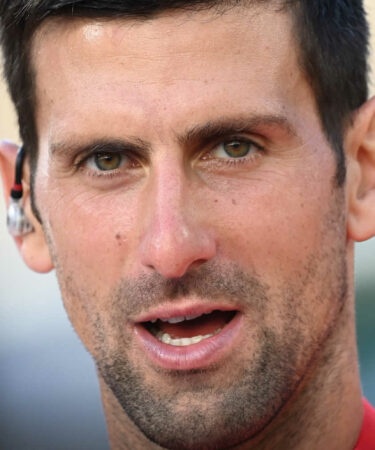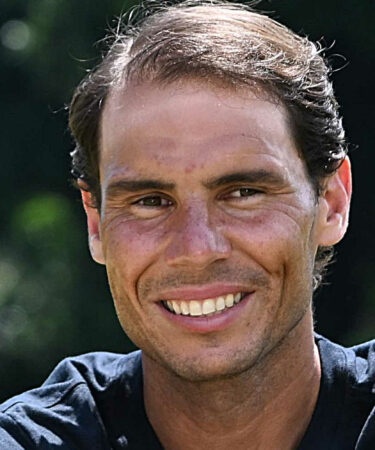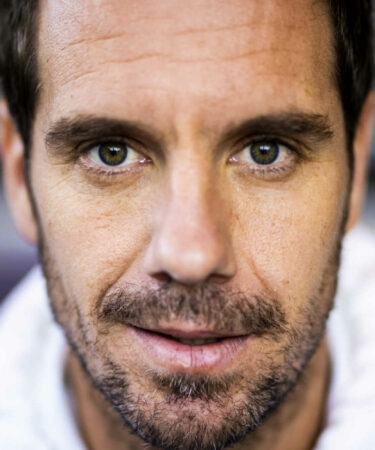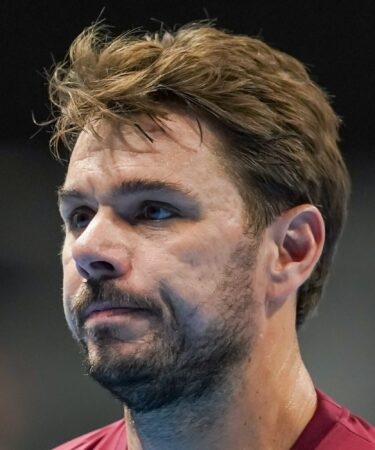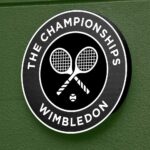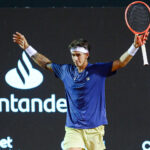The career of Roger Federer: 20 key moments (one for each slam title)
As Roger Federer heads off into the tennis sunset, we look back at 20 of the most important moments in his career.
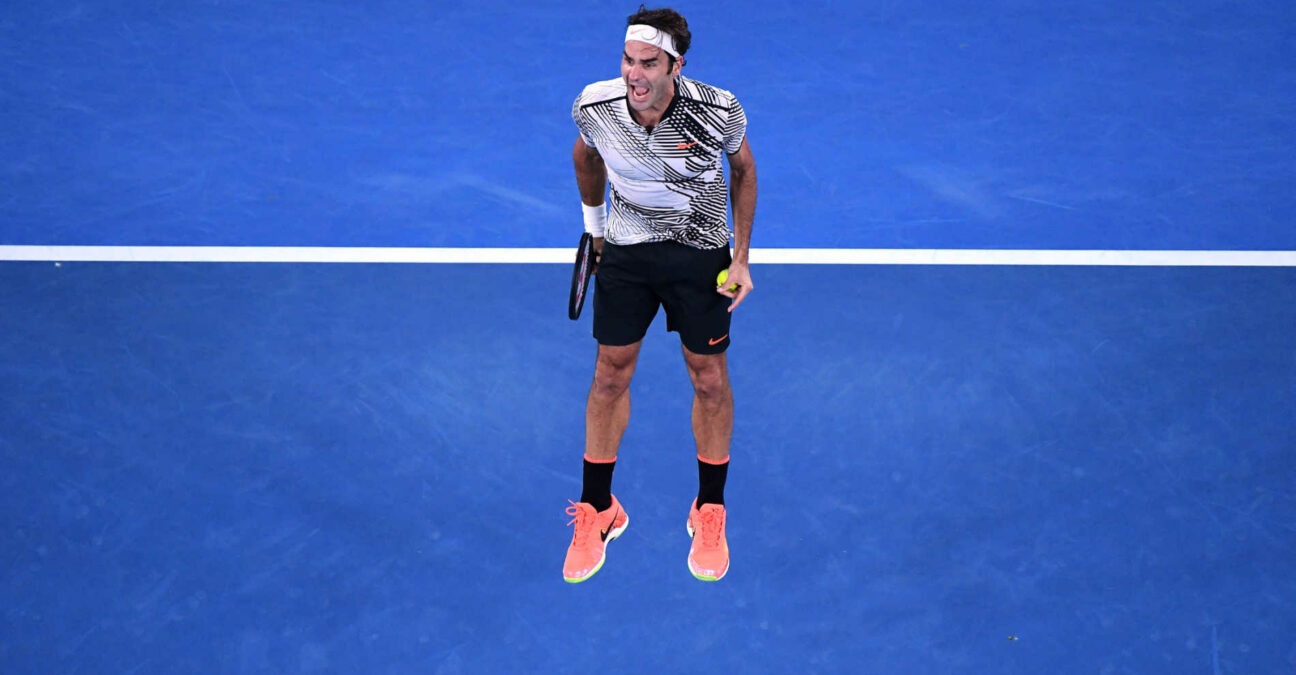 Roger Federer, Australian Open 2017 | © Virginie Bouyer / Panoramic
Roger Federer, Australian Open 2017 | © Virginie Bouyer / Panoramic
Roger Federer’s announcement that he is to retire from professional tennis after next weekend’s Laver Cup brings to an end the career of arguably the greatest player of all time.
The Swiss leaves the sport with 20 Grand Slam titles, 103 titles in all, 310 weeks at the top of the world rankings and in the knowledge that he changed tennis.
We know many of you may have different ideas of your biggest moments, but here are our 20 key moments in his glittering career, in chronological order.
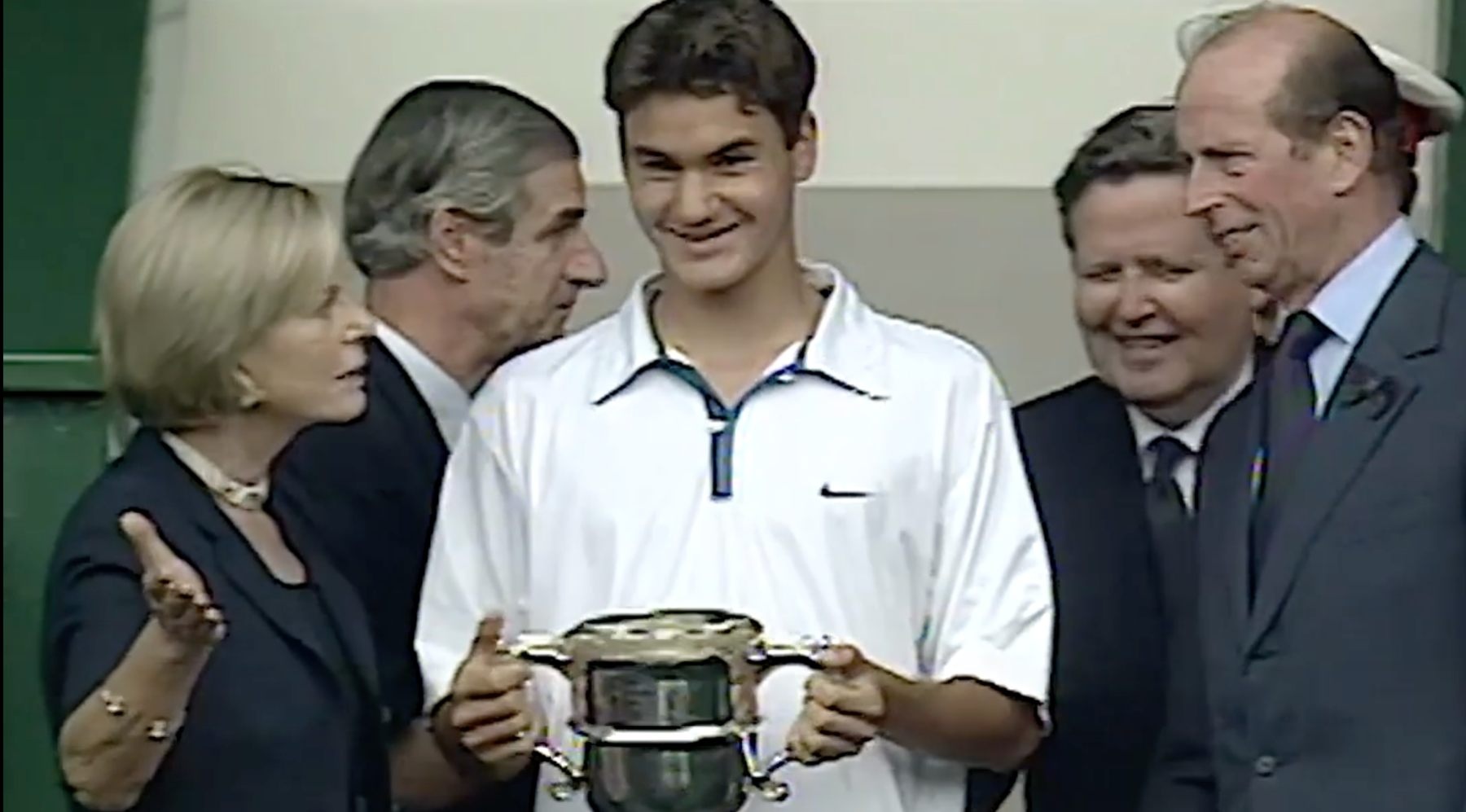
1. Wins junior Wimbledon 1998
Federer was 17 when he won junior Wimbledon, beating Irakli Labadze 6-4, 6-4 in the final. He also won the doubles, with Belgian Olivier Rochus. It was a sign of things to come, but though his talent was obvious, few would have foreseen just how good he would become, although the BBC commentator at the time had an inkling. “We’ll be seeing him again,” he said.
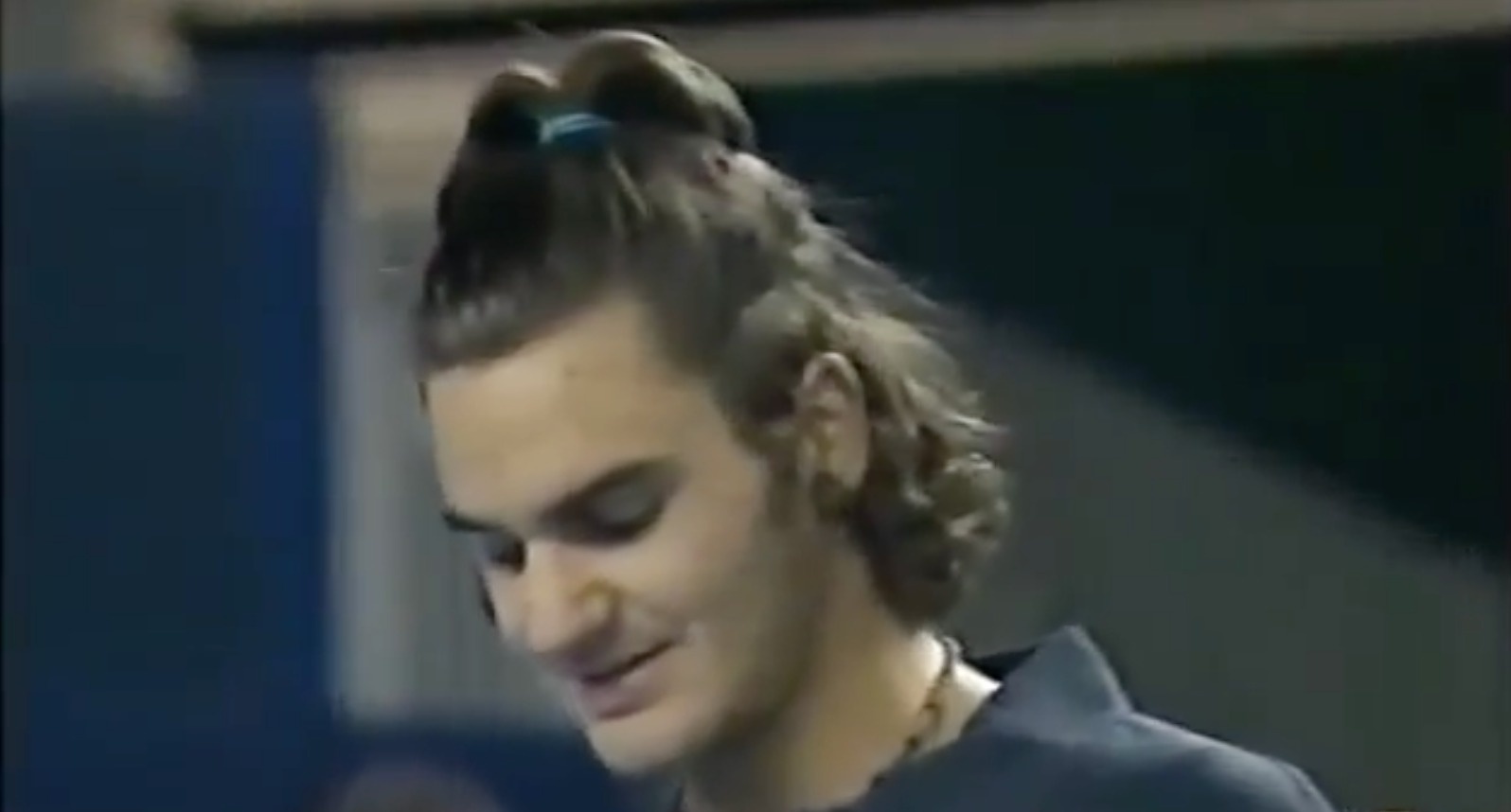
2. First ATP Tour final in Marseille, 2000
Federer beat Thomas Johansson, his future coach Ivan Ljubicic and Fabrice Santoro to reach his first ATP Tour final in Marseille in February 2000. His opponent in the final was his fellow Swiss, Marc Rosset. Federer was distraught after losing in a final-set tiebreak and Rosset later revealed that Federer feared he would never win a title. He needn’t have worried. Rosset took Federer under his wing after that and the rest is history.
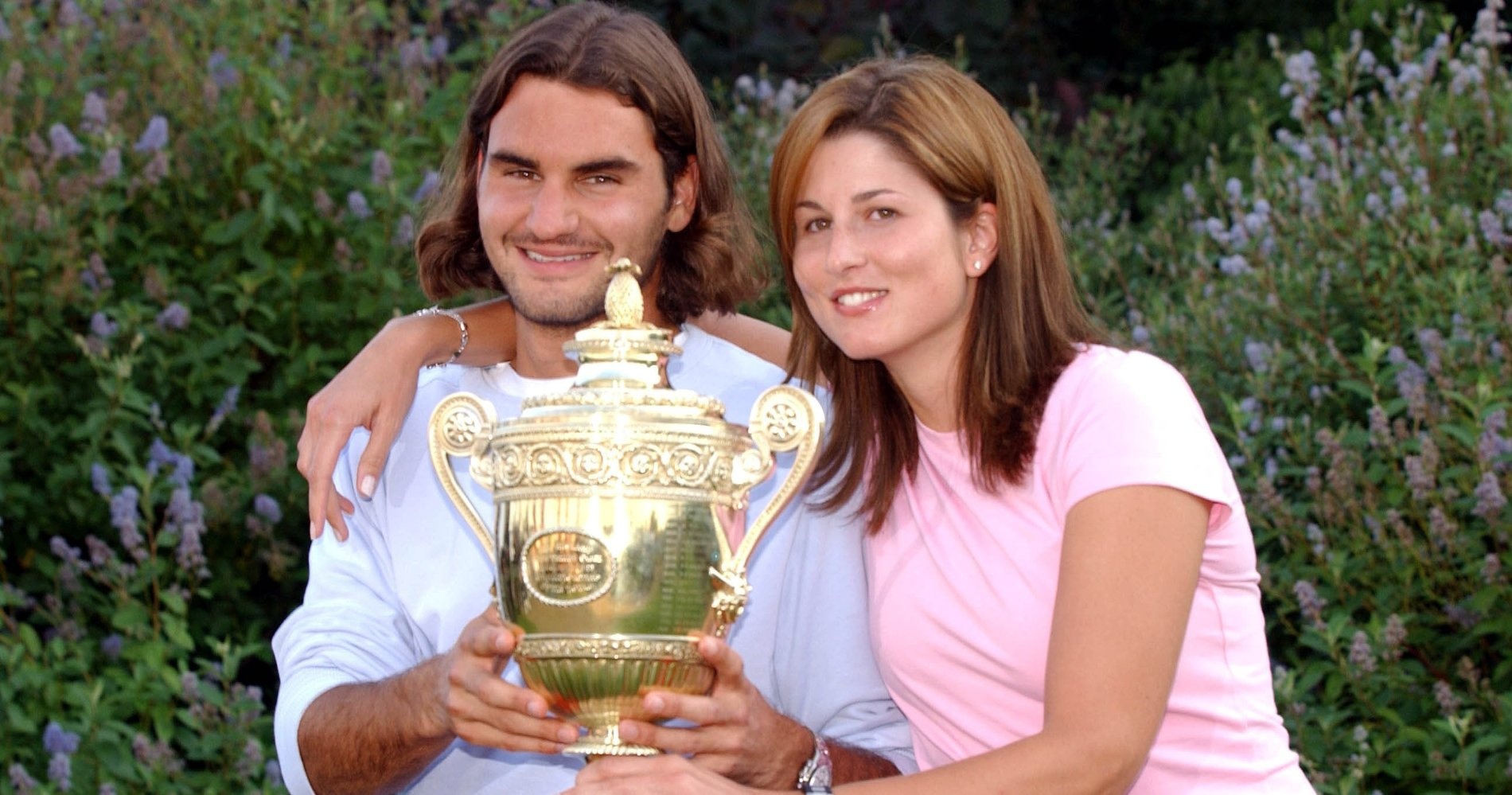
3. Meets his future wife Mirka at the Sydney Olympics in 2000
It’s possible that the biggest moment in Federer’s career, and his life, came when he met his future wife, Mirka Vavrinec, at the Sydney Olympics in September 2000. A fine player herself, after her career was ended early because of injury, Vavrinec slotted perfectly alongside Federer, becoming the support and security he needed. Initially she helped him get over the disappointment of missing out on an Olympic medal in Sydney; she managed his business affairs when he was between agents, warmed him up for matches and, as he said in his retirement letter, watched countless matches of his, even when heavily pregnant. Without her, as he said many times, it would not have been possible to become the player he did.
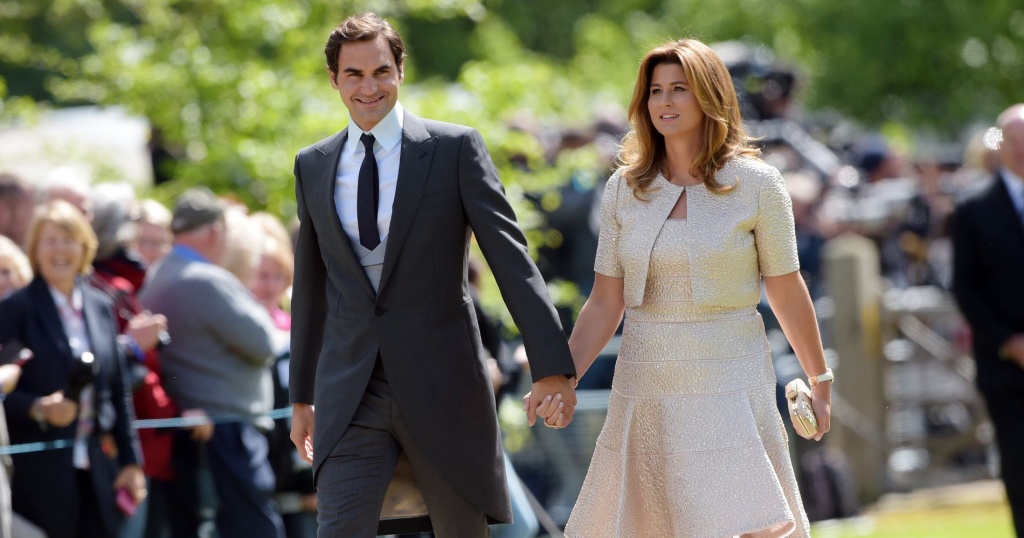
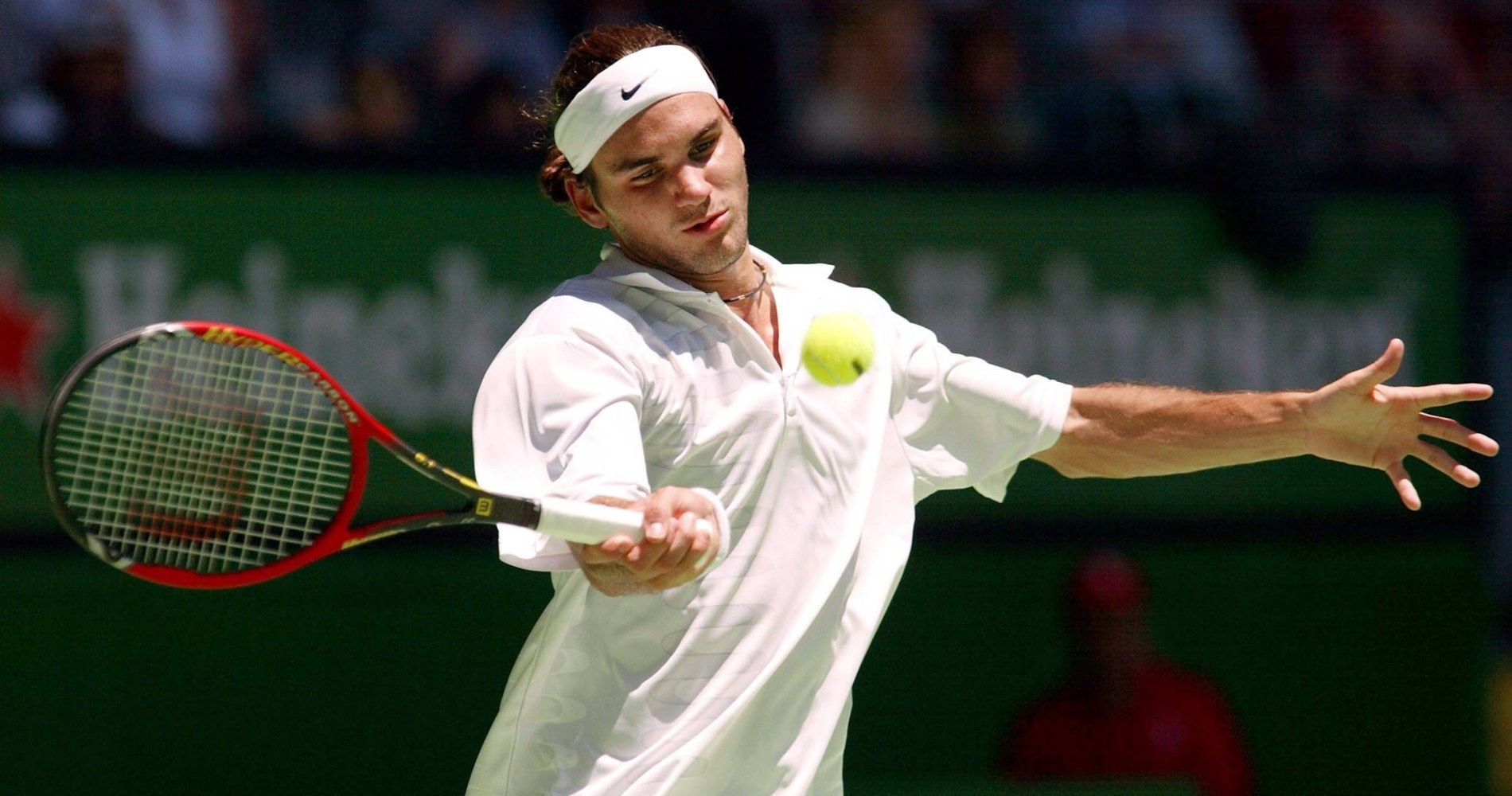
4. Beats Pete Sampras at Wimbledon 2001
This, famously, was when Federer burst onto the world scene, beating his idol – and the seven-time champion – Pete Sampras in the fourth round at Wimbledon. The image of Federer falling to his knees after hitting his forehand return past Sampras on match point lives fresh in the memory and it was the match that showed him, and perhaps everyone else, that he was capable of greatness. The first question in the press conference summed it up nicely: “You just changed the course of history, stopped a 32-match winning streak that Sampras had. How does that feel? Tim Henman will point out that he beat Federer in the next round, but the seed had been sown.
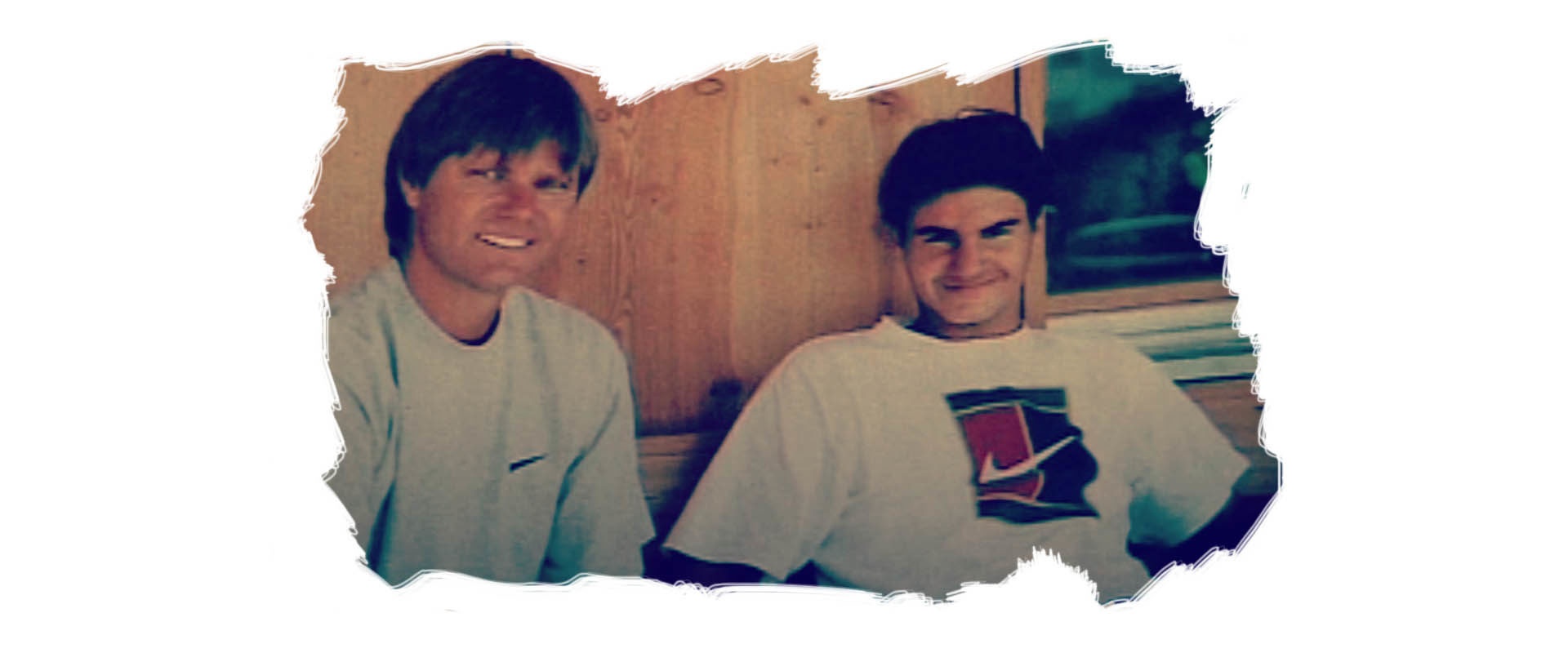
5. Death of Peter Carter, August 2002
Federer’s world came falling down when his former coach and close friend, the Australian, Peter Carter, died in a car accident in August 2002. Federer first met Carter when he was nine years old and though Peter Lundgren had replaced him to travel with Federer by the time of the crash, Carter was an integral part of his life. It was a pivotal moment in his career; those who know him well say Federer was left bereft but also used the tragic event as motivation to get serious. From that moment on, the Federer who had been a volatile teenager on the court transformed into the serene Swiss the world came to know. And Federer kept in touch with Carter’s family, buying them tickets and flying them down to Melbourne each year for the Australian Open.
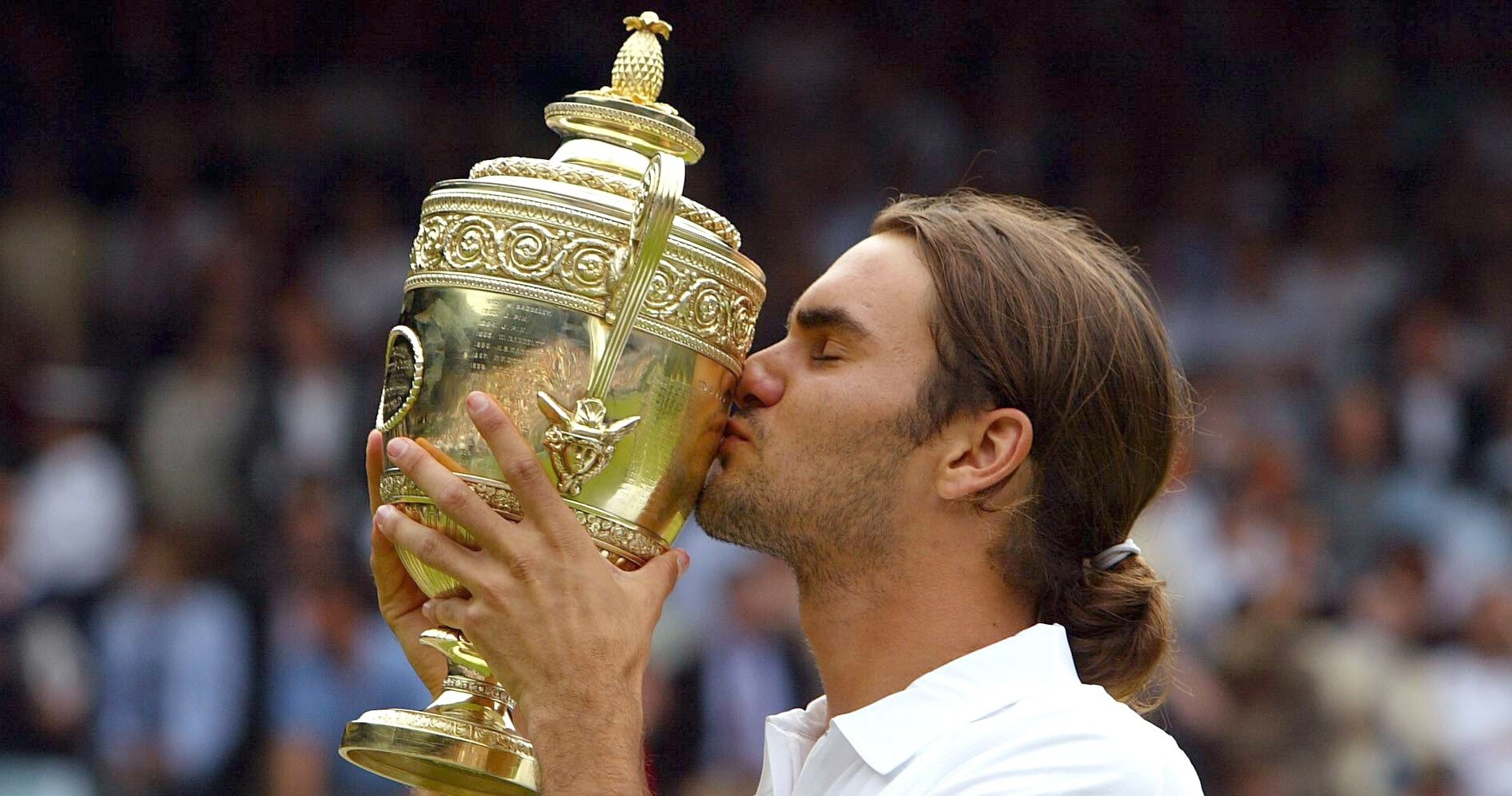
6. Wins first Grand Slam title at Wimbledon 2003
By the time he came to Wimbledon in 2003, Federer was beginning to feel the pressure. He had not gone past the quarters in a slam and had lost in the first round at the French Open earlier that month. However, winning his first grass-court title in Halle the previous week had boosted his confidence and in the end, he breezed to the title, dropping just one set (to Mardy Fish in the third round) and then in the final, beating Mark Philippoussis to lift his first Grand Slam title. In the on-court interview, Sue Barker’s first comment to Federer was spot on. “Roger Federer, Wimbledon champion. You’d better get used to that.” It was, of course, the first of eight Wimbledon titles he would win.
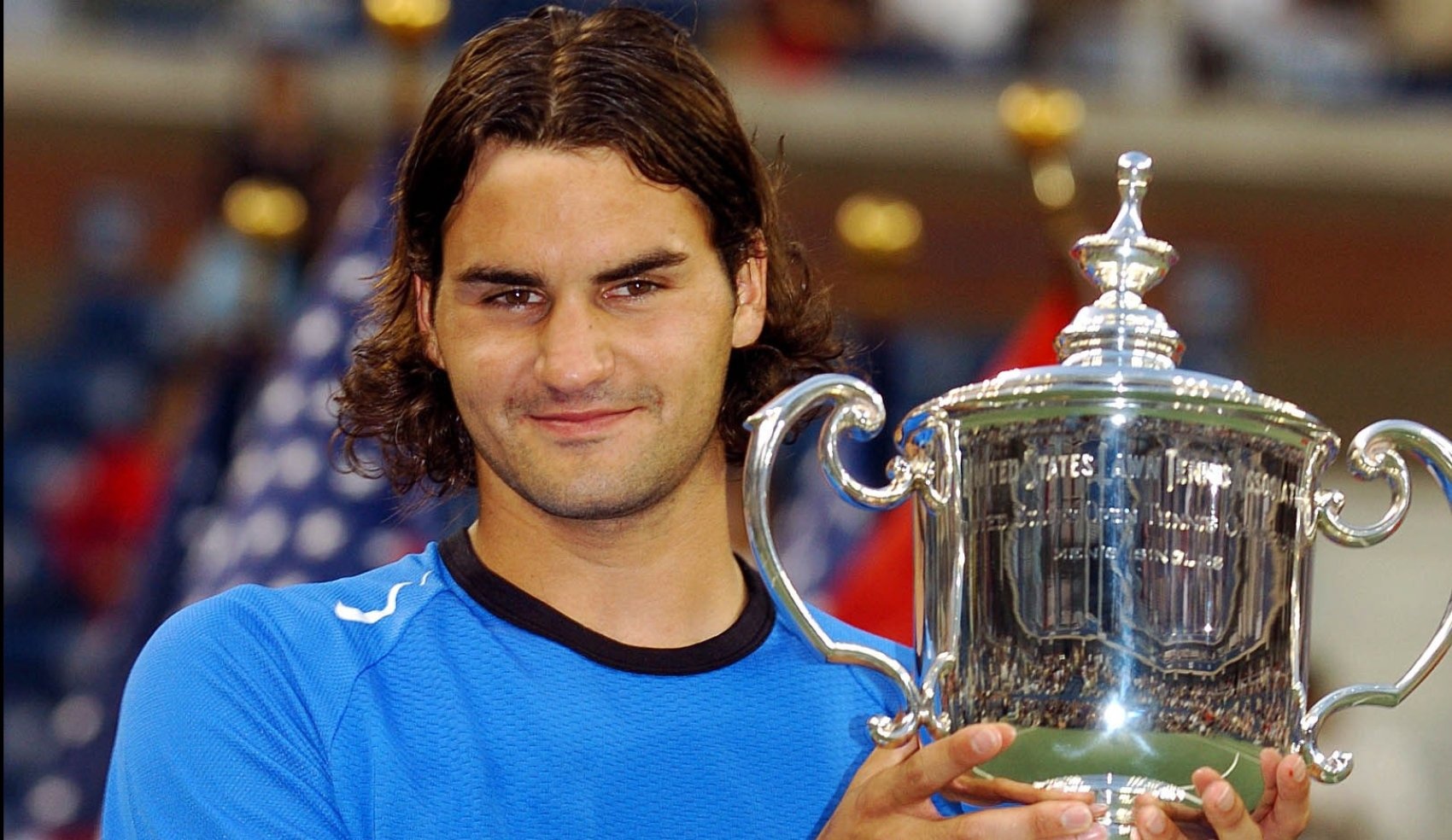
7. Wins US Open in 2004, “when Roger became Roger”
The year 2004 was, as the likes of Andy Roddick and James Blake have said many times since, “the year Roger became Roger”. The Swiss won the Australian Open at the start of the year to become world No 1 for the first time. Though he lost early in Paris, he won Wimbledon for the second time and then, at the US Open, he put on a masterclass to win a third slam in the year. In the final, he beat Lleyton Hewitt 6-0, 7-6, 6-0, a stunning performance against a former world No 1, who only won five points in the first set. Sets one and three were close to perfection. Afterwards, Hewitt was asked if he thought Federer had a chance to become one of the best players of all time. “He’s definitely got a chance, there’s no doubt about it,” the Australian said.
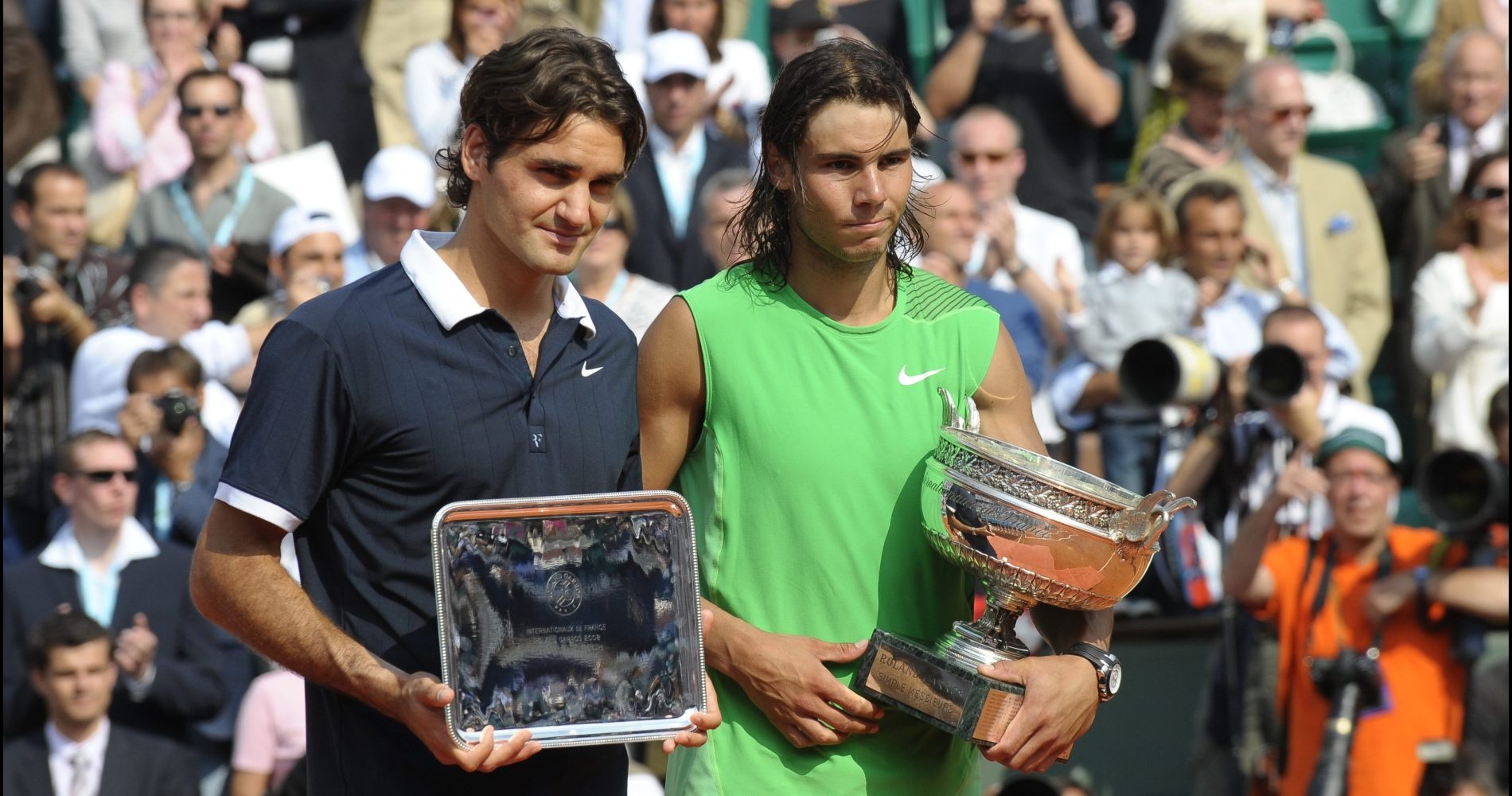
8. Crushed by Nadal in the 2008 Roland-Garros final
Rafael Nadal had denied Federer in the final of the French Open in the previous two years but such was the Swiss’s dominance of the Tour that he went into the final in 2008 believing he had a chance of winning the title for the first time. Federer had pushed Nadal close in Monte-Carlo and Hamburg, but at Roland-Garros that year, he was obliterated 6-1, 6-3, 6-0, his worst ever loss in a Grand Slam match. It was tough for Federer to take, but with his beloved Wimbledon to come, he quickly turned his thoughts to elsewhere.
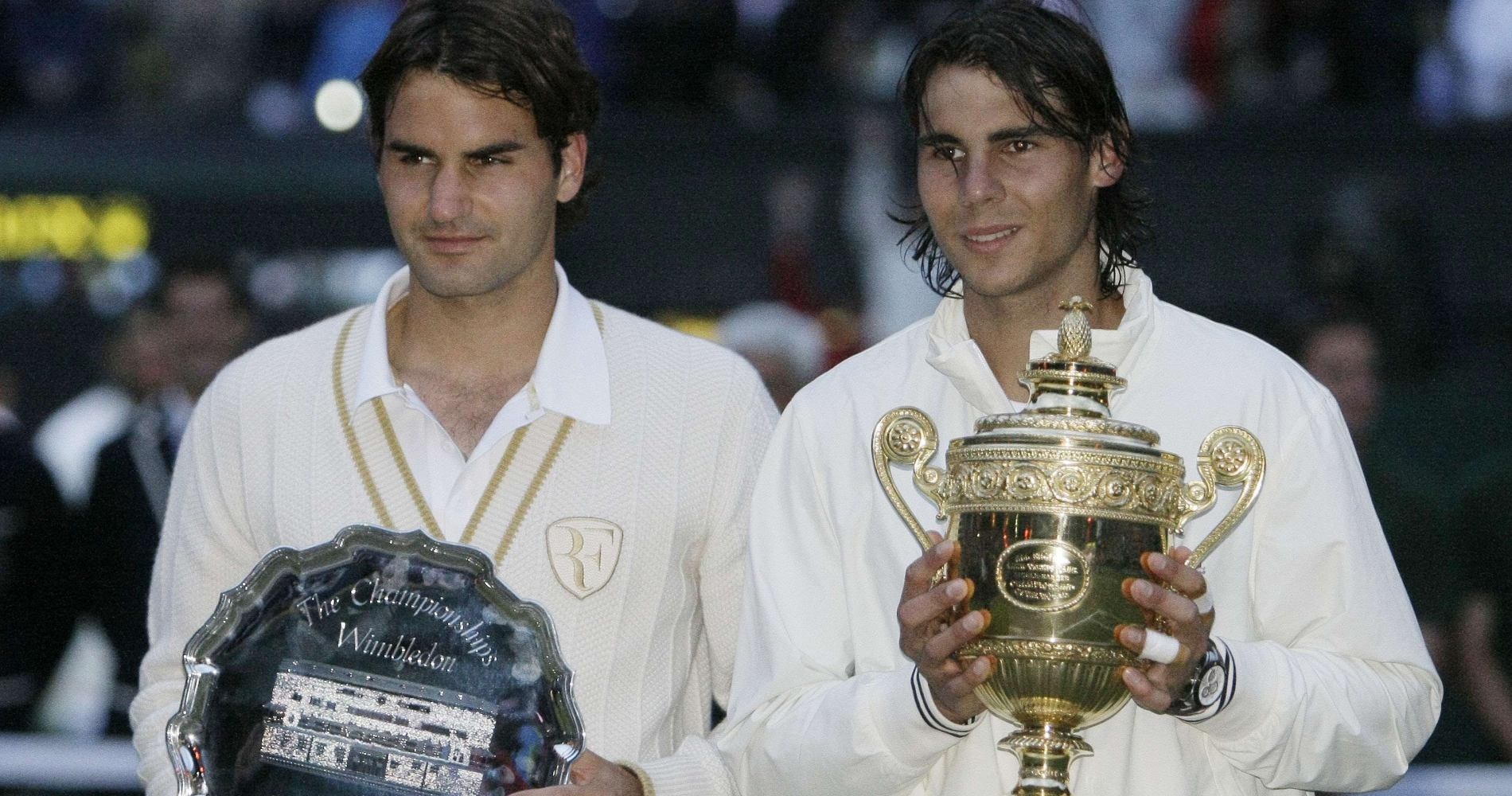
9. Stunned by Nadal in epic 2008 Wimbledon final
Unfortunately for Federer, that Roland-Garros defeat had a knock-on effect when it came to Wimbledon, though it took a monumental performance by Nadal in the final to deny him what would have been a sixth straight title there. It was an epic final. Nadal led two sets to love and 4-5 in the third when it rained and when they came back, Federer snatched the third and then saved two match points in the fourth to force a decider. But in a final set that finished at 9.15pm in near darkness, Federer put a forehand in the net to hand Nadal the title and end a run of 65 straight wins on grass, his most dominant surface. Federer was understandably gutted but still magnanimous in defeat. “The rain didn’t make it easier but you have to expect the worst and he’s the worst opponent on the best court,” he said. “It’s a pity I couldn’t win it, but I’ll be back next year.”
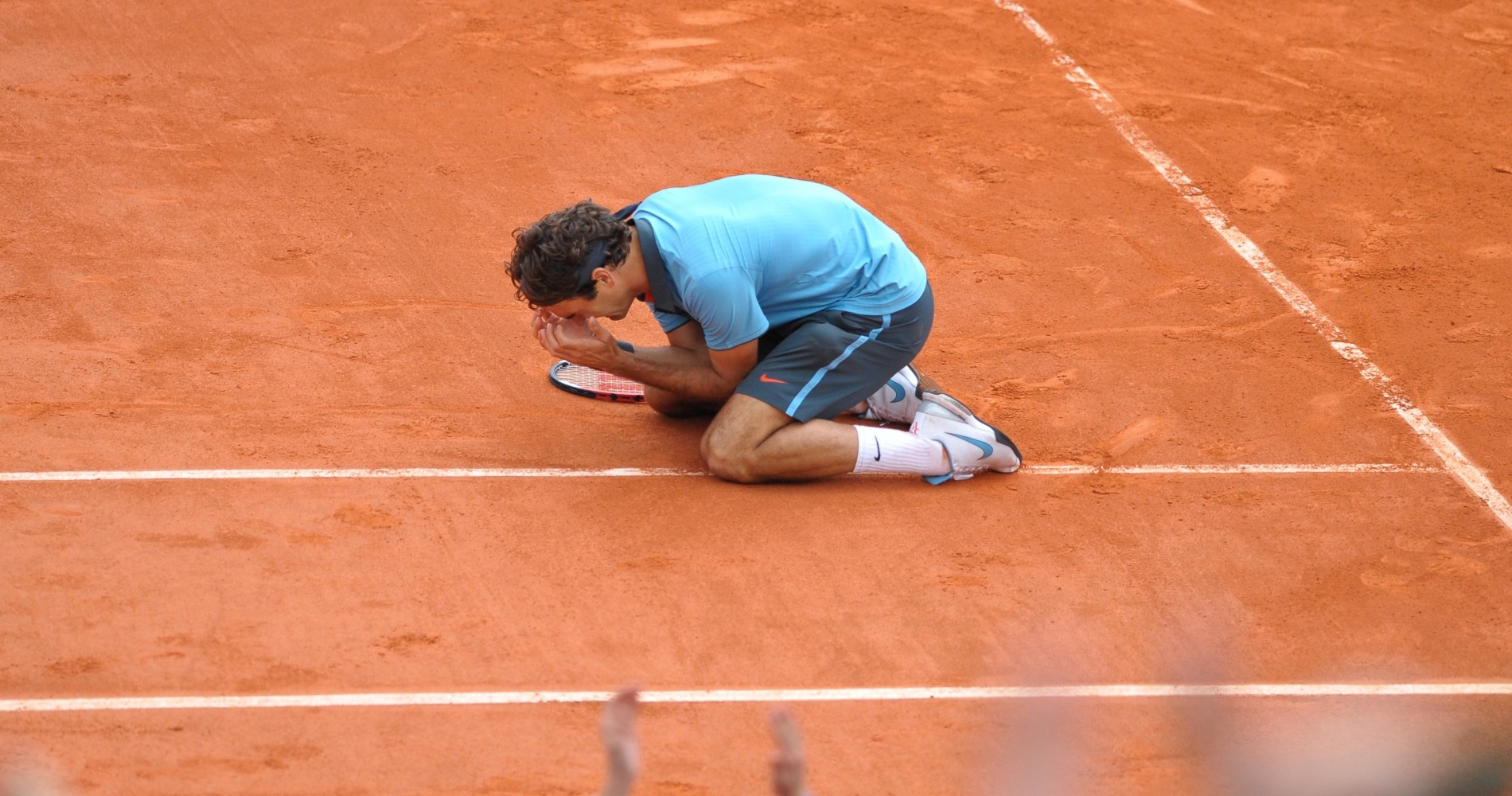
10. Wins Roland-Garros in 2009, completes career Grand Slam
Sometimes the stars align. For Federer, that moment came when Nadal suffered his first ever defeat at Roland-Garros, beaten by Robin Soderling in the fourth round. It was a loss that opened up the draw for Federer but suddenly he had to handle the pressure, knowing this was his best, and perhaps only chance to win the title. Federer almost went out in the fourth round himself, coming from two sets down to beat Tommy Haas and then recovered from two sets to one down to get past Juan Martin Del Potro in the semis. The final was fairly straightforward – except for the moment when a man ran onto the court and tried to put a flag around the Swiss. It was a scary moment, though John McEnroe, commentating, tried to lighten the situation somewhat. “At least he’s got his clothes on,” he said. It didn’t disturb Federer too much, though, as he won in straight sets to complete the career Grand Slam.
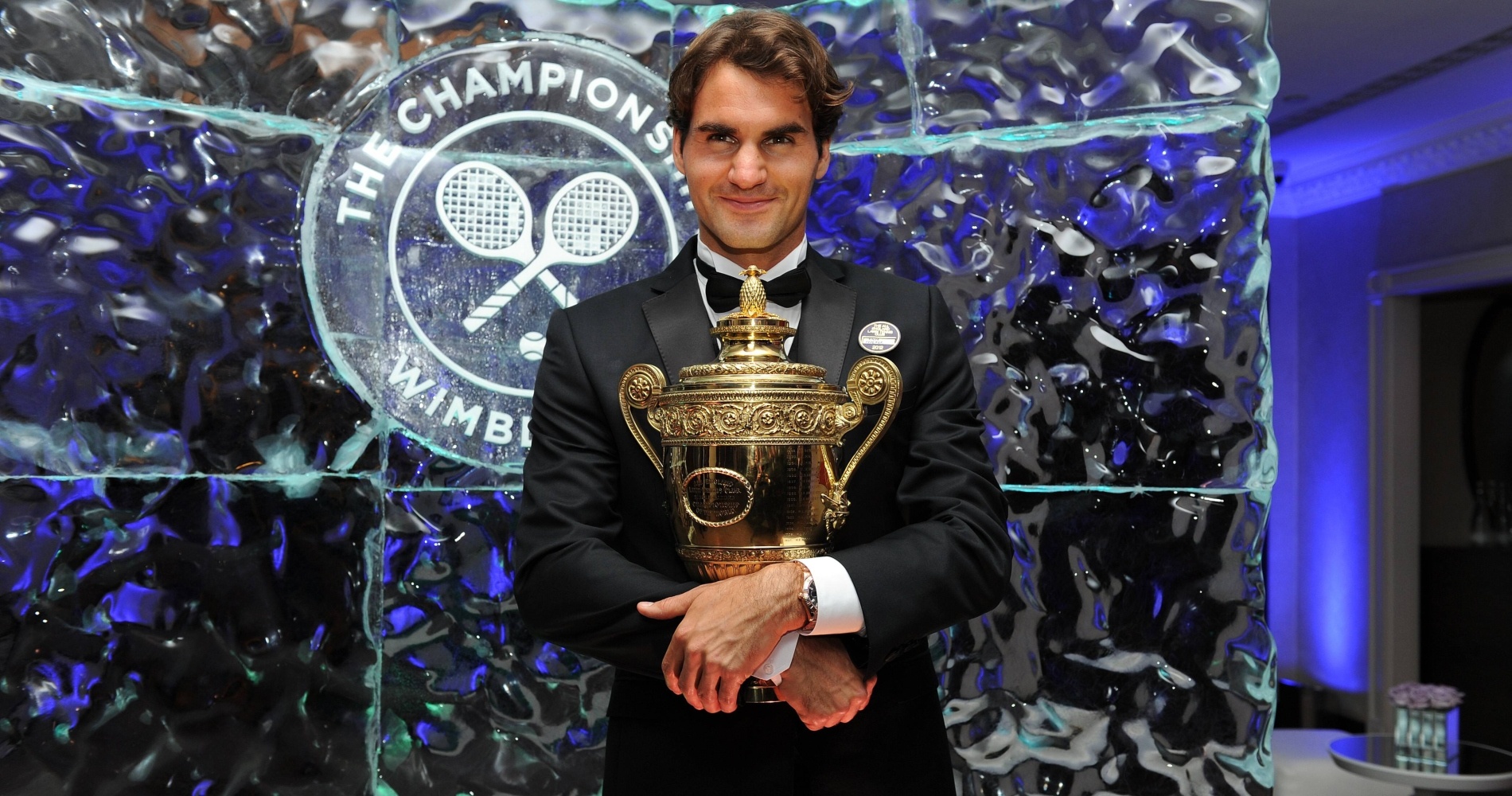
11. Wins Wimbledon in 2012 to regain No 1 spot
Having dominated the Tour for most of the previous six years, Federer arrived at Wimbledon in 2012 with just one slam to his name, at Wimbledon in 2010. In the 2012 final, he faced Andy Murray, who was carrying the hopes of a nation on his shoulders, trying to become the first home man since Fred Perry in 1936 to win it. Murray won the first set but Federer levelled and eventually pulled away for his seventh Wimbledon title and 17th Grand Slam crown. The win also returned Federer to the top of the world rankings at 30 years old, an age when most players had retired. It also left Murray in tears, tears that would endear him even more to the country.
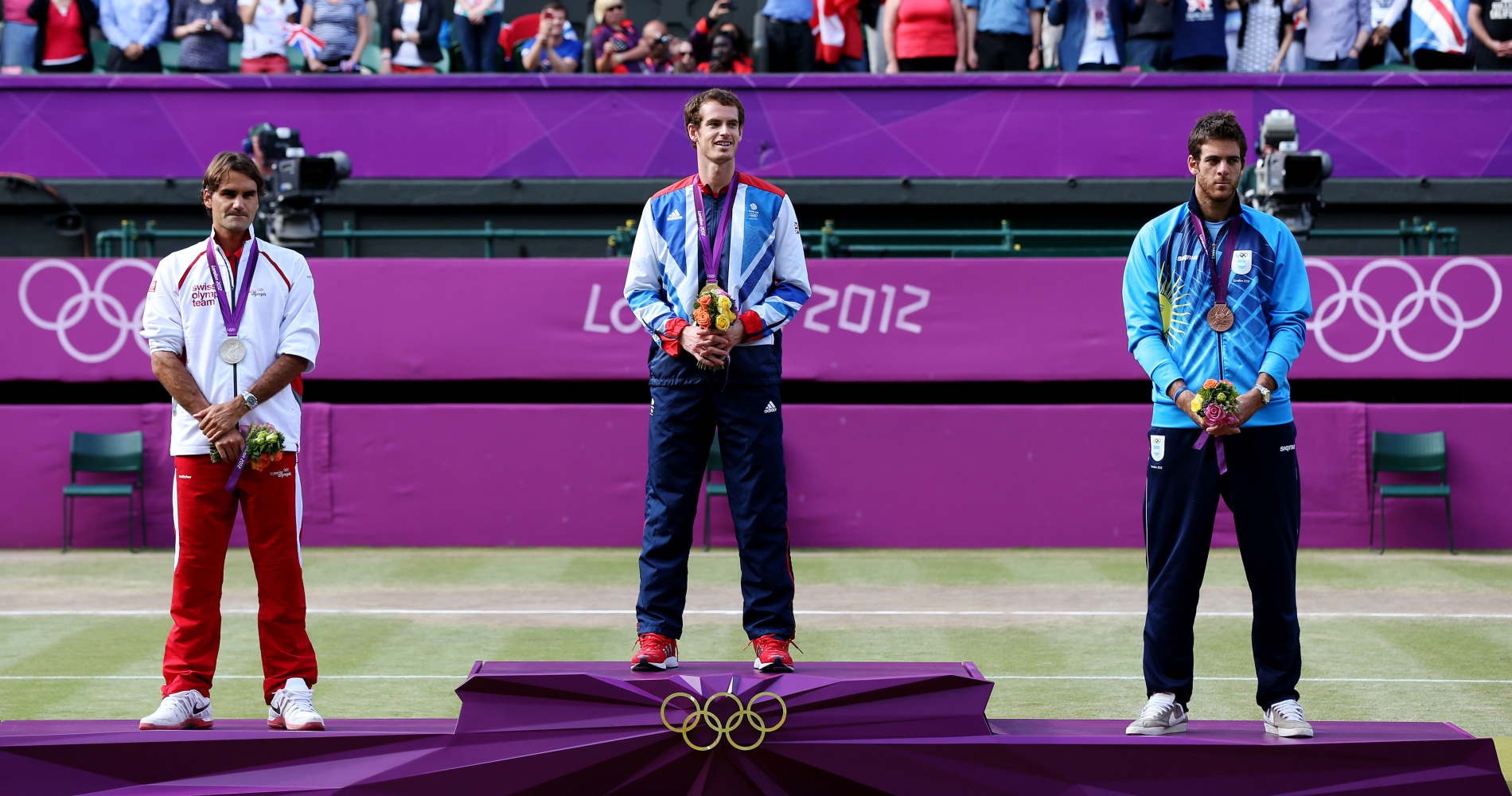
12. Wins first Olympic singles medal in London in 2012
The Olympics had not been a happy hunting ground for Federer in singles until 2012. In 2000, he’d missed out on a medal, losing in the semi-finals and then the bronze medal match; in 2004, he’d lost first round to Tomas Berdych and in 2008, he was beaten by James Blake in the quarter-finals. His doubles gold medal with Stan Wawrinka in 2008, though, restored some of the balance and in 2012, he was back on the grass and again the favourite to win. An epic semi-final win over Del Potro took him through to the final, but also meant he had little left in the tank. In the final, he was crushed by Murray, who claimed the biggest title of his career. Federer, meanwhile, was satisfied with his achievement. “I’m very happy,” he said, congratulating Murray on his victory. “For me, it’s been a great month. I won Wimbledon, became world No. 1 again and I got silver. Don’t feel too bad for me.”
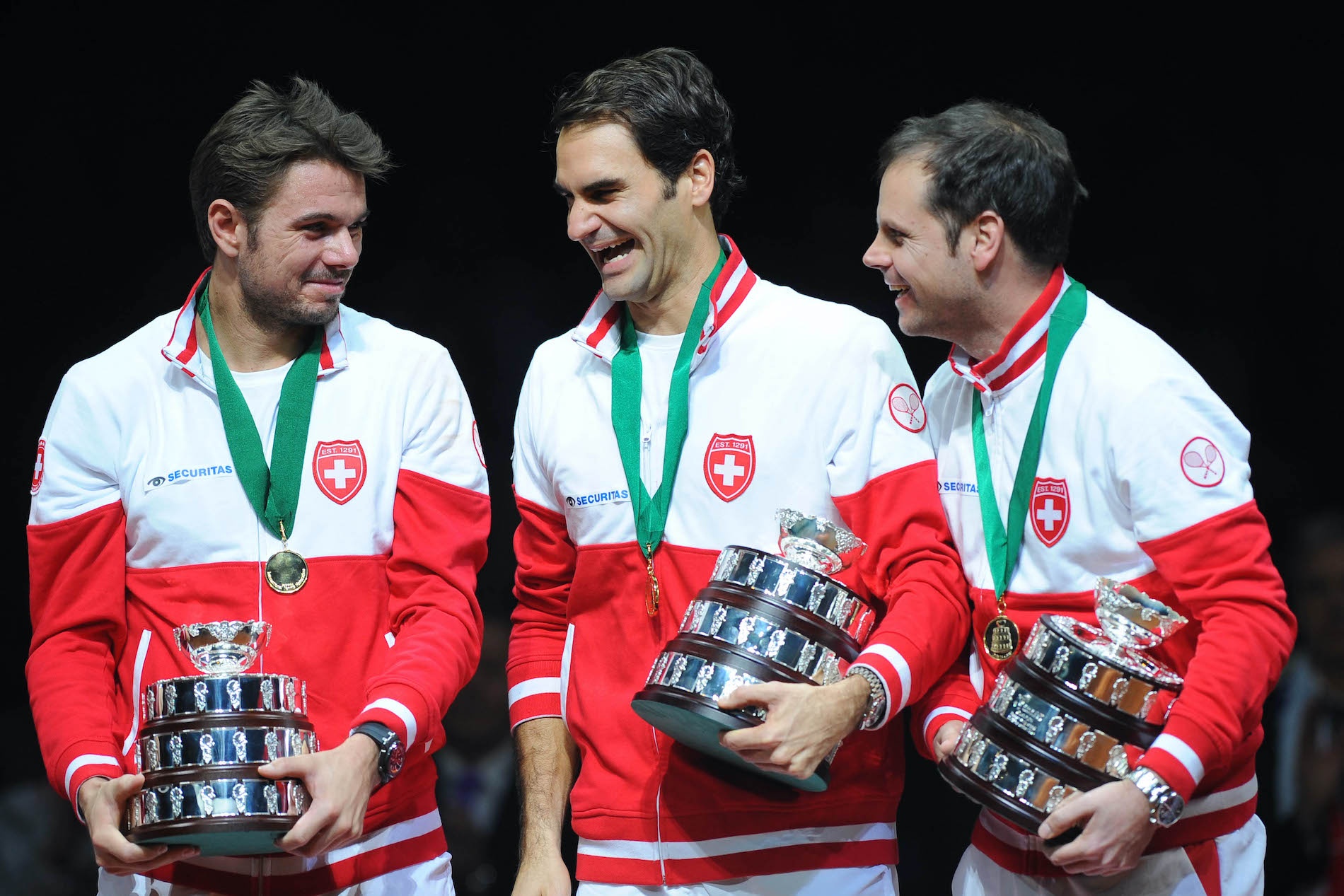
13. Wins Davis Cup for Switzerland in 2014
By the time 2014 came around, the only thing missing from Federer’s resume was a Davis Cup title. This was the year he really tried to win it, playing doubles more often with Wawrinka and even hiring the coach of the Bryan brothers to lift their game ahead of the final against France in Lille. Federer and Wawrinka had a rare spat the previous week at the ATP Finals and Federer had to pull out of the title-decider because of a stiff back, not wanting to risk Davis Cup disaster. It worked as he and Wawrinka won the crucial doubles in front of a crowd pulling as much for Federer as they were for France. And then Federer beat Richard Gasquet to give Switzerland the title for the first time, clinching victory with the most beautiful of drop shots.
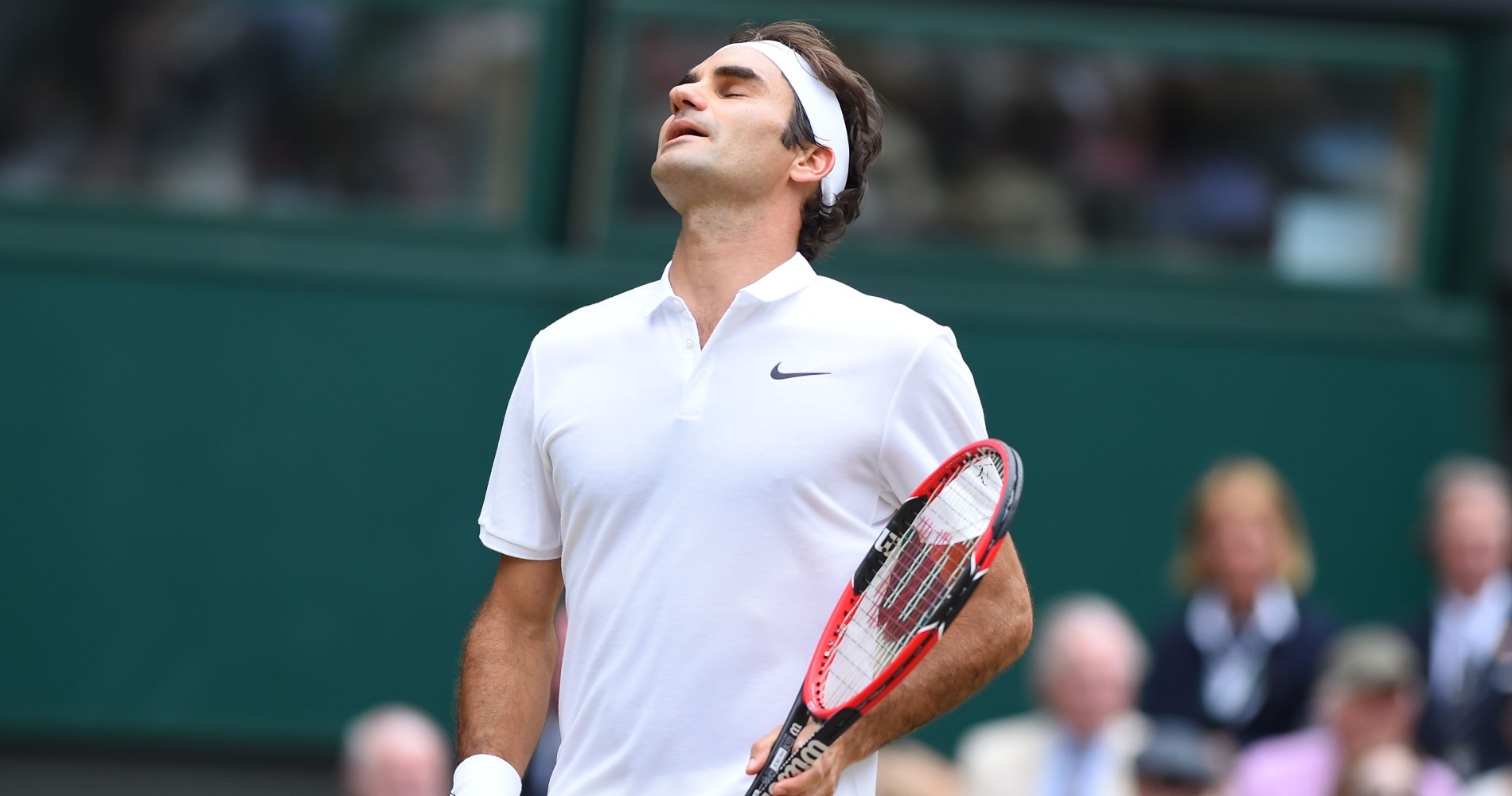
14. First knee surgeries in 2016
Federer had already had surgery for a torn meniscus in early 2016, when he slipped while giving his daughter a bath. When he fell during his quarter-final defeat by Milos Raonic at Wimbledon in 2016, it looked awkward but few realised at the time that the Swiss would require surgery to his left knee soon after. Having avoided serious injury for most of his career, an occasionally troublesome back aside, this was the first time Federer had required surgery and with his 35th birthday just around the corner, no one knew if he would be able to return, or in what state he would be when he did. “I don’t know yet (how bad it was),” he said at the time. “I don’t even want to know. I just felt not the same afterwards.”
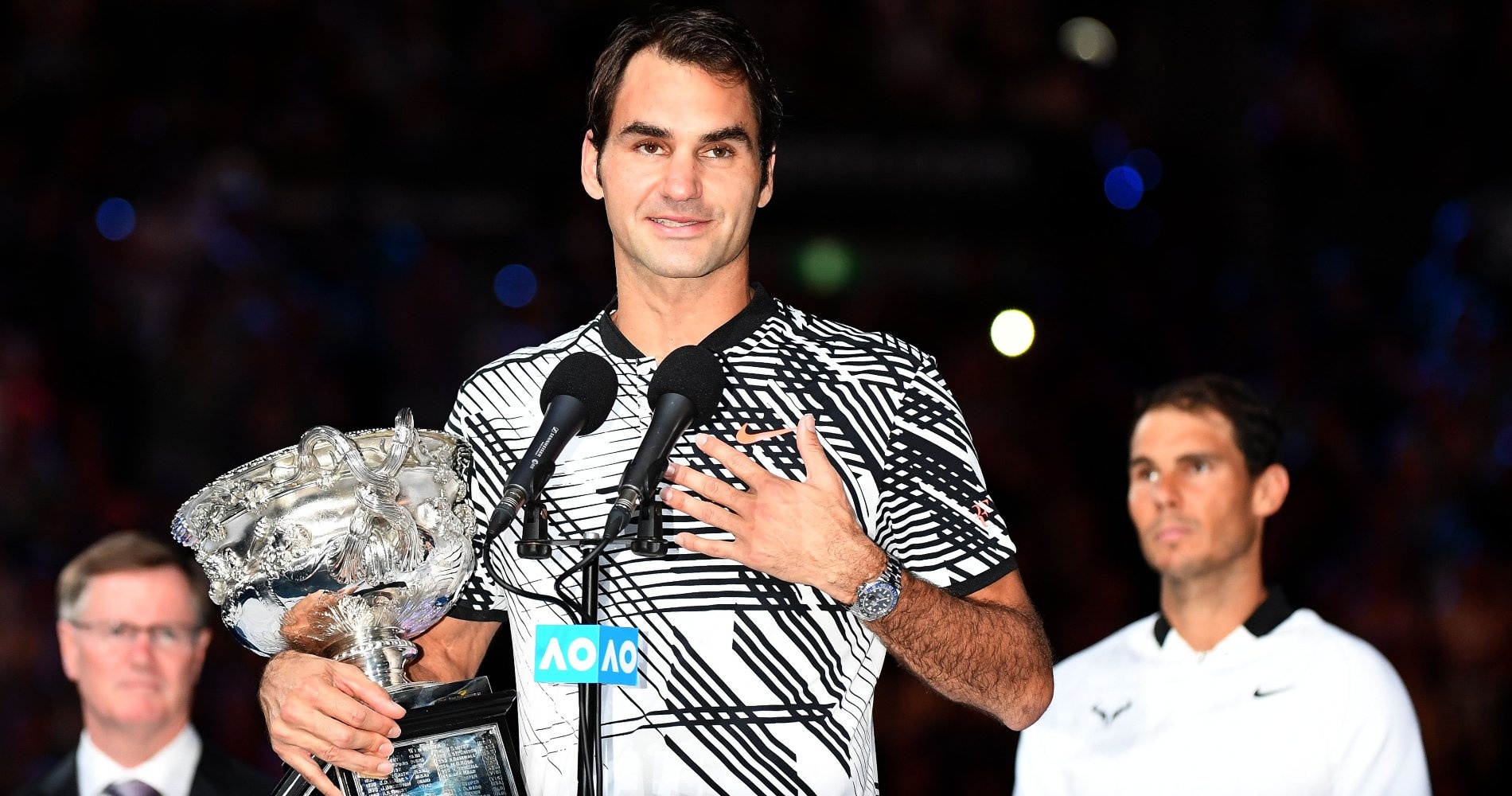
15. Stunning comeback, three more slams and No 1 again
Federer had not played for six months when he arrived in Melbourne for the Australian Open and no one knew who he would fare. But a good showing at the Hopman Cup had given him belief and in the 2017 Australian Open, he produced something of a miracle. He needed five sets to get past Kei Nishikori in the fourth round and five sets again to beat Wawrinka in the semis. In the final, he faced his old foe Nadal, who had beaten him in five of their most recent six meetings. At 3-1 down in the fifth, the match looked over but Federer, hitting his backhand return more aggressively than ever before, played five near-perfect games to claim the title and become the oldest man, at 36, to win a slam since Ken Rosewall in 1972. He won Wimbledon for the eighth time in the summer and in 2018, he won the Aussie Open again, taking him back to world No 1 yet again.
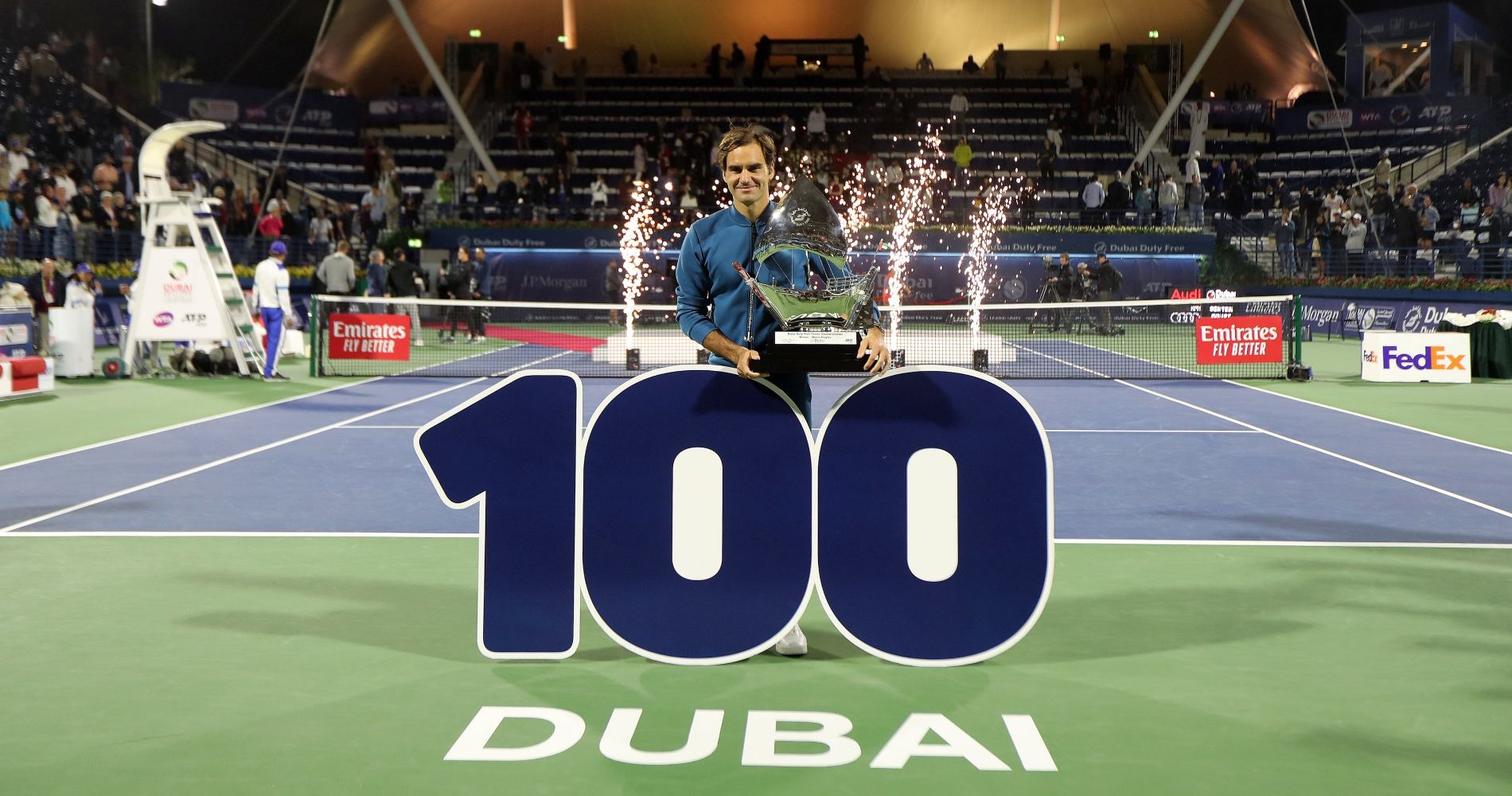
16. Wins 100th title in Dubai, 2019
Federer’s 99th title had come in Basel in the autumn of 2018 and though winning his 100th at home might have been a secret hope of Federer, winning it in Dubai was a close second. Federer had made a second home there for many years, doing all his off-season training in the heat and away from the cameras, often inviting the best young players to test him out and get him ready for the new year. The pressure was on Federer’s shoulders to get the milestone win and the in the first two rounds, he was pushed to a deciding set. From then on, he relaxed and in the final he beat a young Stefanos Tsitsipas, a small measure of revenge for his defeat by the Greek at the Australian Open the previous month. He became just the second man in history to win 100 titles, joining Jimmy Connors in the most elite of clubs.

17. Loses to Novak Djokovic in the 2019 Wimbledon final
This, surely, was the one that got away. At 37, Federer had won Miami and Halle and played brilliantly to reach the final yet again, beating Nadal in the semi-finals to set up a clash with Djokovic for the title. All kind of history was on the line; including trying to win a ninth title to equal Martina Navratilova; trying to become the oldest winner and so on. And Federer was the better player for the first four sets, only to find himself two sets all after two bad tiebreaks. At 7-7 in the final set, he broke Djokovic to serve for the match and at 40-15, had two match points on his own serve. He couldn’t get it done, mostly thanks to Djokovic’s incredible resilience. And as good as he had always been at moving on, it hurt. “I don’t know what I feel right now. I just feel like it’s such an incredible opportunity missed, I can’t believe it.”
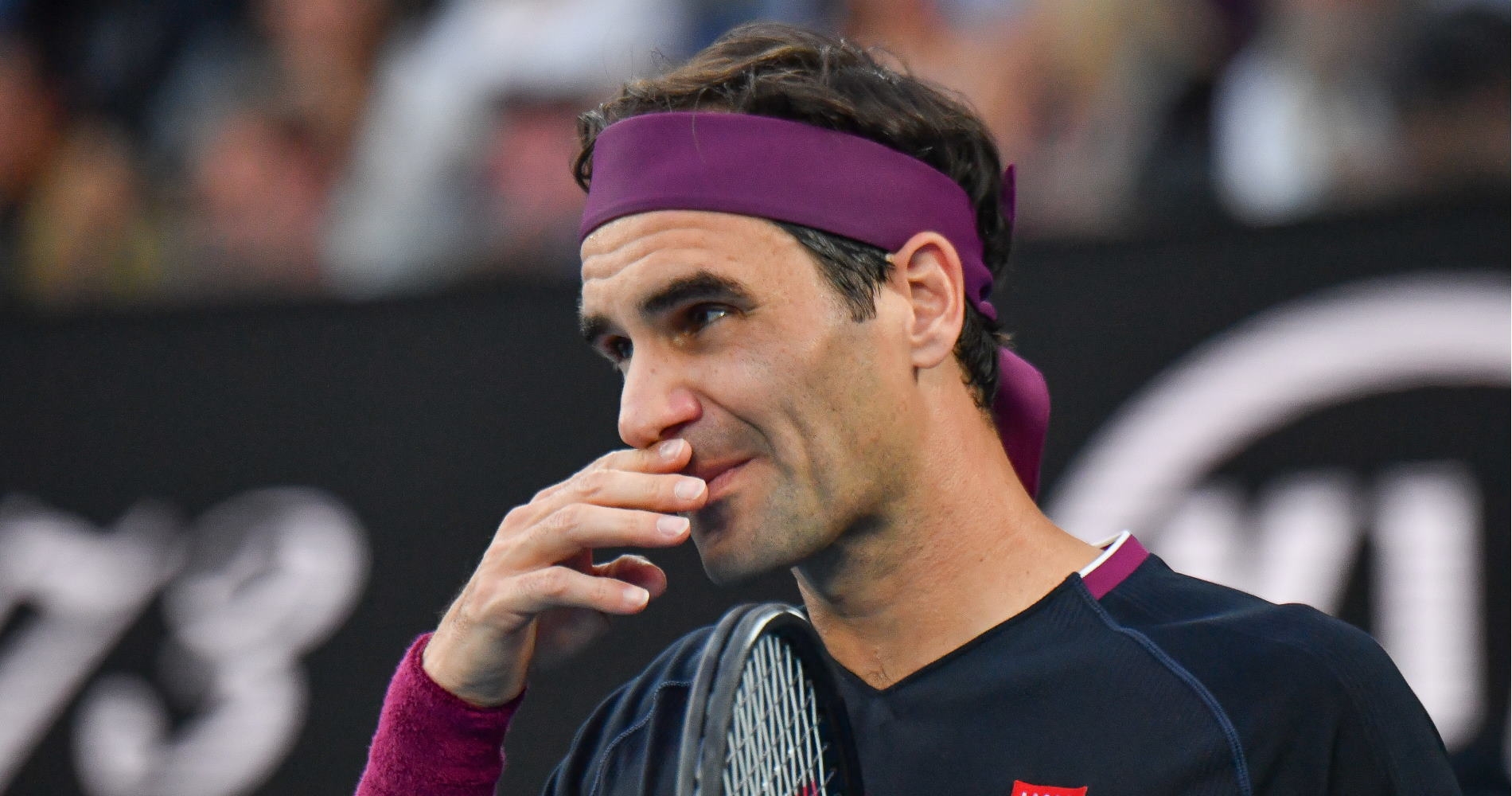
18. Sets records in 2020; double knee surgery and pandemic
2020 was undoubtedly a mixed year for Federer. First he defied a stiff back to reach the semi-finals at the Australian Open, saving seven match points on the way to victory over Tennys Sandgren before falling to Djokovic. Then, with the help of Rafael Nadal, he played an exhibition match for Match for Africa – raising money for the Roger Federer Foundation – in front of a record 51,954 fans. At the time, Federer said he hoped he could “still play for a bit longer” but soon after, he had the first of two right knee surgeries. In March, the world shut down because of the Covid-19 pandemic and when it began again, Federer announced he would need a second operation, keeping him out for the rest of 2020.
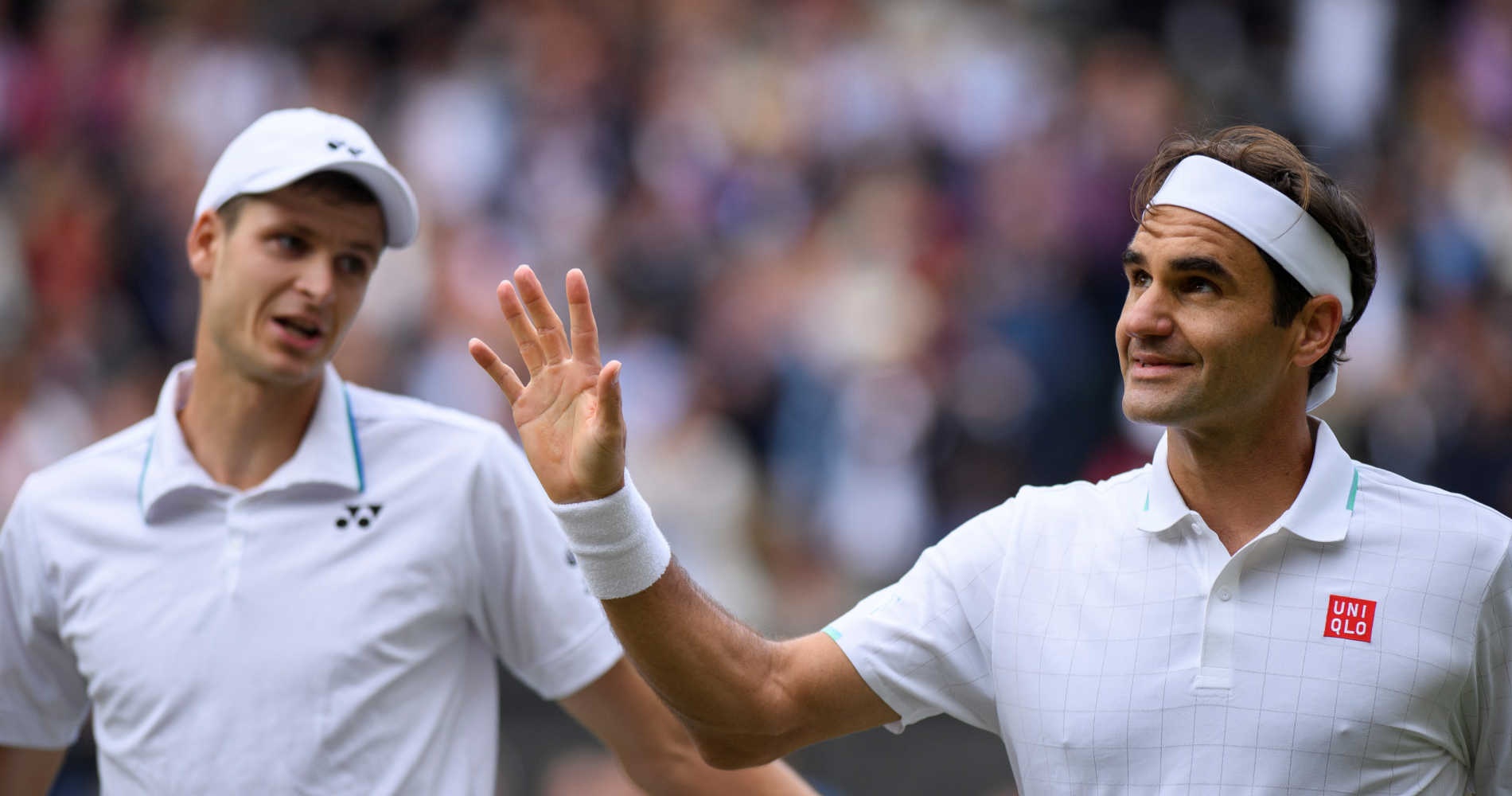
19. Comeback, Wimbledon loss to Hurkacz, more surgery
Federer made a much-anticipated comeback in Dubai in March 2021, beating Dan Evans in the first round before losing to Nikoloz Basilashvili. He played only sporadically until the French Open, where he reached the fourth round but pulled out before his last 16 match to protect his knees. At Wimbledon, he reached the quarter-finals despite never quite looking right, and eventually lost to Poland’s Hubert Hurkacz, losing 6-3, 7-6, 6-0. Soon after, he had a third operation on his right knee and announced that he hoped to return to the Tour when he was fully recovered.
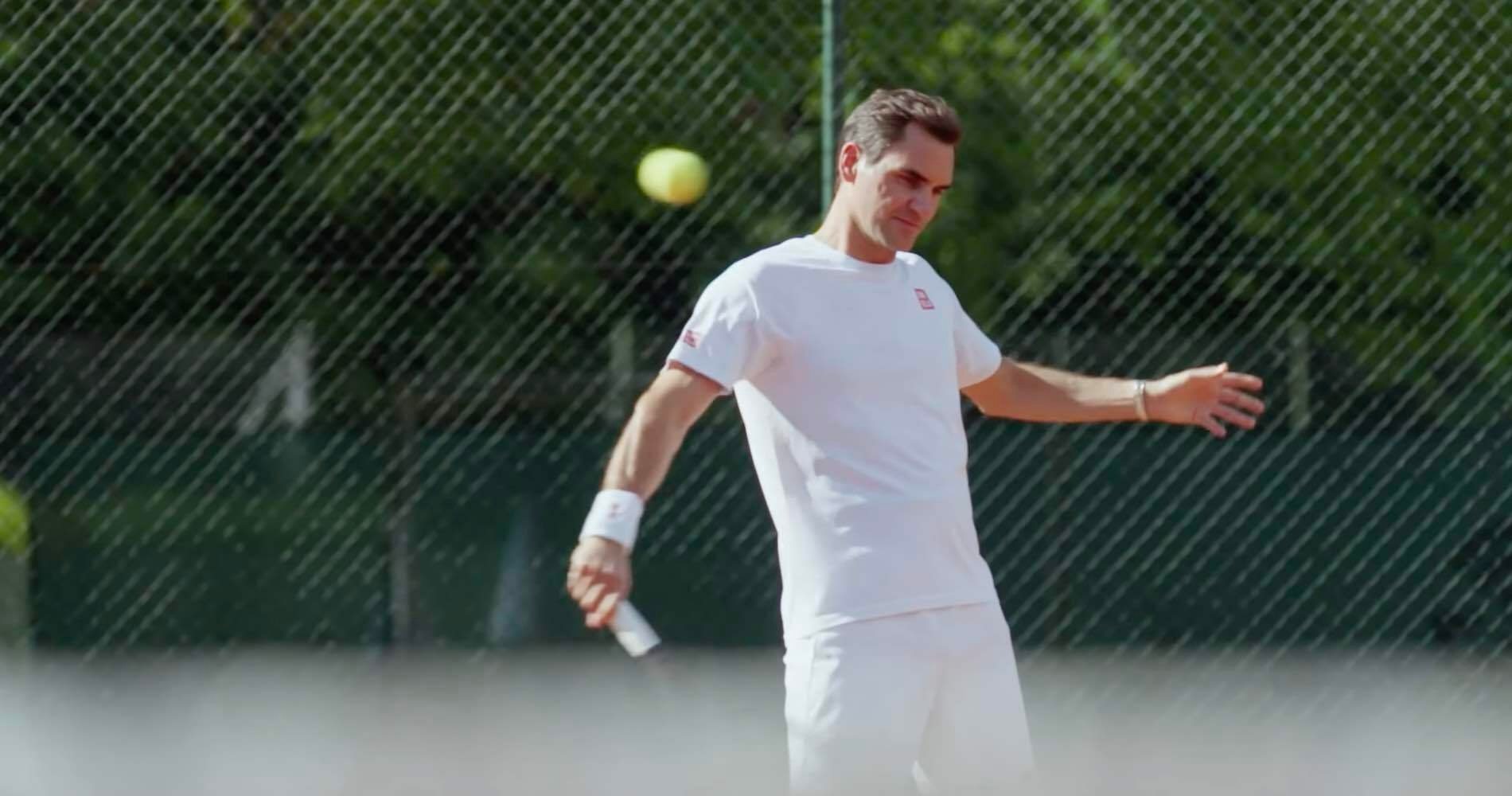
20. 2022 – First hope, then retirement
Unfortunately, the final knee surgery was not successful enough to get him back on the court. Despite several false dawns, Federer eventually realised that he would not be able to play at 100 percent and compete at the very top level. On September 15, he announced his decision to retire, after 24 years on Tour, more than 1500 match wins, 103 titles and 20 Grand Slam titles. “The past three years have presented me with challenges in the form of injuries and surgeries,” Federer said in a statement on social media. “I’ve worked hard to return to full competitive form. But I also know my body’s capacities and limits, and its message to me lately has been clear.”
His last event will be at the Laver Cup in London, between September 23 and 25.
